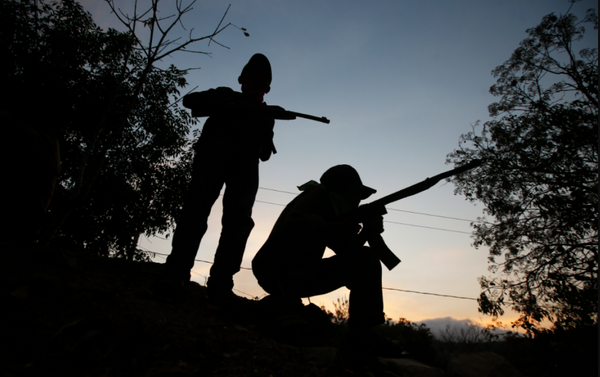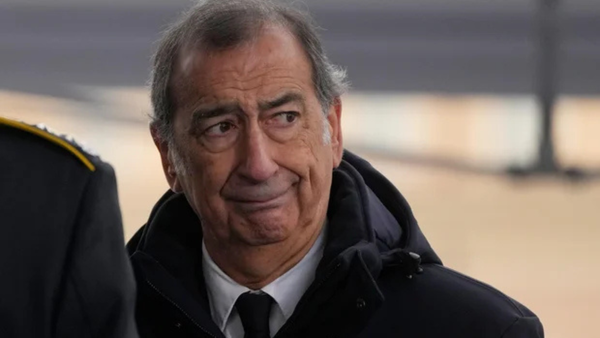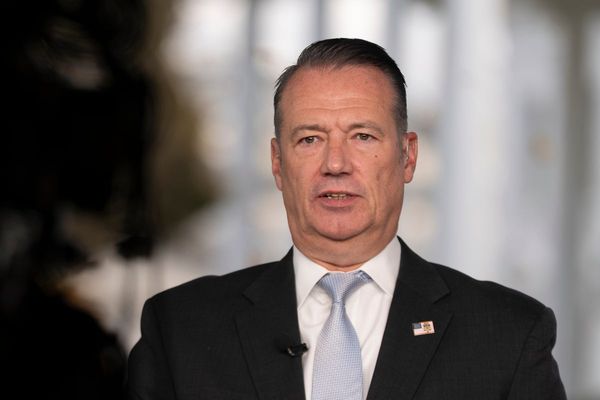BOISE, Idaho — Bryan Kohberger, the Pennsylvania man charged with murdering four University of Idaho students in November, sat in silence and declined to enter a plea Monday through his public defender at his long-awaited arraignment.
Judge John Judge of Idaho’s 2nd Judicial District Court in Latah County, after detailing to Kohberger the five felony charges and punishments up to the death penalty on four of those counts, in turn entered a plea of not guilty on all charges.
Kohberger, 28, is accused of the stabbing deaths of U of I seniors Kaylee Goncalves and Madison Mogen, each 21, junior Xana Kernodle, 20, and freshman Ethan Chapin. The four victims’ bodies were found at an off-campus rental house in mid-November.
At the request of Kohberger’s attorney, Judge also scheduled the trial for up to six weeks, starting Oct. 2. Latah County Prosecutor Bill Thompson did not object to the timeline.
Edwina Elcox, a Boise-based criminal defense attorney, answered questions for the Idaho Statesman in a phone interview Monday about how Kohberger’s arraignment played out, and what it could mean for a potential trial.
Why does a defendant stand silent for a plea?
When a defendant chooses not to enter a plea of guilty or not guilty to the charges against them, they are deemed to be standing silent, as Anne Taylor, Kohberger’s appointed public defender, told the judge Monday. A judge then automatically converts a defendant’s decision to remain silent into a not guilty plea, said Elcox, a former Ada County deputy prosecutor.
“The judge can’t enter a guilty plea on somebody’s behalf,” she said. “The thought is that it’s kind of a way to preserve the ability to negotiate with the state” on a possible plea deal to avoid a trial.
In addition, Elcox said, the defense lacks several key pieces of information at the moment to decide how best to represent Kohberger and proceed with the legal process. Those factors likely contributed to the strategic decision by the defense, she said.
What information is the defense lacking?
Of utmost importance, the defense does not yet know if the prosecution will seek the death penalty if Kohberger is convicted. That decision is likely to weigh heavily into whether a plea agreement can be struck at some point in the future, Elcox said.
“That’s probably a pretty significant factor, because the state hasn’t committed to whether or not they will seek the death penalty yet,” she said. “They need to know, ‘Yeah, you can plea,’ or that it’s off the table. Or, ‘We’re seeking this no matter what, no offers, no deals, and we’ll let a jury figure this out.’ “
Also, the defense has said it is still awaiting more evidence through the discovery process.
Judge, for example, on Monday scheduled a hearing in late June over the defense’s motion to compel discovery evidence that it says the state so far has withheld or not yet delivered. Thompson in response filings argued the state has met the requirements of Idaho law, and objected to specifics the defense sought about the DNA testing process that linked Kohberger to the crime scene.
When will the state decide on the death penalty?
Judge’s entering of a plea for Kohberger starts a 60-day clock under Idaho law for the prosecution to inform the court whether it will seek the death penalty in the case.
Only first-degree murder cases qualify for the death penalty in Idaho. Upon a conviction, a jury must also find at least one aggravating circumstance. Those include committing more than one murder at the time, that a murder was “especially heinous, atrocious or cruel, manifesting exceptional depravity” or the defendant “exhibited utter disregard for human life” while committing the murder, per statute.
Will the trial start in October?
For now, Judge set an Oct. 2 trial start date. Unless Kohberger waives his right to a speedy trial, it must begin within six months from his arraignment.
Elcox is skeptical a trial would happen on such a short turnaround, given its high-profile nature, a slew of forthcoming pretrial motions, the issue with discovery held over until the hearing late next month and other possible hangups. As a result, she said, Kohberger’s trial is likely to be pushed back.
“This is a hard timeline to deal with under any circumstances, let alone a case this complex,” she said. “I think the likelihood that this case gets tried or begins trial on the date currently set is a slim-to-none possibility.
“The reality is a case of this magnitude, that’s multi-jurisdictional, has multi-agencies, to coordinate that number of witnesses, for the defense to get a handle on that much different evidence, to seek their own potential experts, to theoretically combat whatever the state has, six months seems like a long time, but it’s a drop in a bucket.”
Could a trial change of venue still happen?
In short, yes. Such a request is not typically raised during an arraignment, Elcox said. So it still may be forthcoming on the grounds of seeking a fair trial for Kohberger, outside of the community where the crime occurred.
“It would be entirely appropriate to make that request at some point in the future,” Elcox said. “There needs to be a ruling on that and then the alternative venue has to be selected and that has to be coordinated. The logistics of that make it appropriate to be well before the trial.”
Jessica Bublitz, another Boise-based criminal defense attorney, previously told the Statesman that she thought the judge in the case would agree to a change of venue request, and also that the prosecution wouldn’t oppose it.
“I think it will be granted,” she said. “Either party can make the motion, and it’s up to the judge himself. One thing you have to be careful with is due process, in any capital case, and you want to be very attentive to making sure that you do everything correctly.
“The entire state of Idaho is likely to be invested in this case. Moscow was extremely impacted, but really all of Idaho was. Knowing this prosecution, I think they are likely to agree to change of venue.”
Should a change of venue occur, Judge would move with the case.
What happens next?
Judge scheduled separate hearings June 9 to address motions filed by the Goncalves family’s attorney, Shanon Gray, and by a group of media outlets, each challenging the standing gag order. Judge also scheduled the hearing on the defense’s motion to compel discovery evidence for June 27.
From there, Judge will establish a discovery deadline in advance of the scheduled trial, Elcox said. He’s also likely to set a schedule for when motions related to evidence must be filed and other pretrial actions must take place.
Kohberger in the meantime will remain in custody at the Latah County Jail in Moscow, awaiting his next court date.







